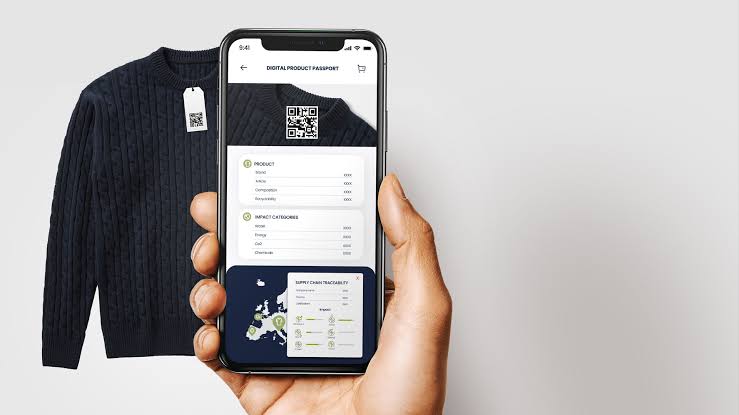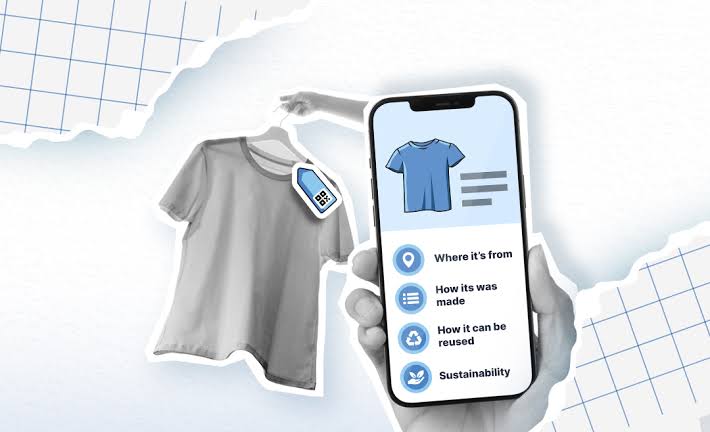
Digital Product Passports Are The New Consumer Superpower
Explore how digital product passports drive product transparency, boost supply chain traceability, and support sustainable manufacturing.
Table of Contents
- What Are Digital Product Passports?
- Why Digital Product Passports Are Key To Transparency
- Digital Product Passports in Sustainable Manufacturing
- Benefits Of Digital Product Passports for Consumers and Brands
- Overcoming Challenges in Implementation
- Ready for the Next Era of Transparency? Let’s Go!
What Are Digital Product Passports?

As consumers grow more conscious and regulatory frameworks evolve, brands can no longer afford to hide behind generic sustainability claims. Enter digital product ID—a next-gen tool revolutionising product transparency and enabling end-to-end supply chain traceability.
A digital product passport (DPP) is a data-rich record attached to a product, offering detailed insights into its origin, material composition, production practices, and lifecycle footprint. Think of it as your product’s digital DNA. This concept is now being widely adopted across industries like fashion, electronics, and manufacturing to ensure sustainable products and build consumer trust.
Why Digital Product Passports Are Key To Transparency
Today’s consumers expect more than just pretty packaging and catchy claims. They demand evidence of authenticity, ethical sourcing, and environmental responsibility. Yet, many brands still struggle to provide real-time access to such information.
That’s where digital product transparency steps in. By embedding transparency into the product itself, brands can easily comply with regulations like the EU regulations on digital product passports while also differentiating themselves as sustainability leaders.
Digital Product Passports In Sustainable Manufacturing
With sustainability becoming a core business strategy, digital product passports are gaining momentum in the manufacturing world. They enable a circular approach to production by documenting repair instructions, recycling pathways, and material reuse—aligning with the goals of sustainable products.
In the apparel industry, for instance, many brands are now exploring how DPPs improve supply chain transparency—from farm to hanger. Every phase, from raw material sourcing to end-of-life disposal, becomes visible and verifiable.
Not only does this help consumers make eco-conscious decisions, but it also empowers brands to eliminate greenwashing and build authentic relationships with their audience.
Benefits Of Digital Product Passports For Consumers And Brands
So, what’s in it for you—whether you’re a brand or a buyer?
- For Consumers:
- Better informed purchases
- Assurance of ethical sourcing
- Access to recycling and reuse instructions
- For Brands:
- Strengthened brand credibility
- Compliance with emerging sustainability standards
- Streamlined data collection for ESG reporting
The benefits of digital product IDs for sustainable fashion are particularly promising. From tracing cotton farms to dyeing techniques and labor standards, fashion houses can now offer transparency like never before.
Overcoming Challenges In Implementation
While the benefits are clear, implementation isn’t without its hurdles. High setup costs, fragmented supply chains, and data standardisation are common obstacles. Still, companies using digital product IDs are finding innovative ways to bridge these gaps.
One standout approach is collaborating with blockchain or cloud-based platforms to build scalable passport systems. These platforms help in implementing digital passports in manufacturing sectors with complex operations and numerous suppliers.
A few pioneering brands are even integrating technology in product lifecycle transparency, giving consumers access to real-time updates about their purchase’s journey.
Ready For The Next Era Of Transparency? Let’s Go!
It’s no longer a matter of if but when your brand will need to adopt digital product passports. From enhancing product transparency and supply chain traceability to driving sustainable products, DPPs are more than just a trend—they’re the future of ethical commerce.
Don’t get left behind. Whether you’re in fashion, electronics, or FMCG, now is the time to digitise your brand story, build trust, and embrace sustainability.
Start your journey with digital product transparency today—because transparency isn’t just smart marketing, it’s your brand’s superpower.





